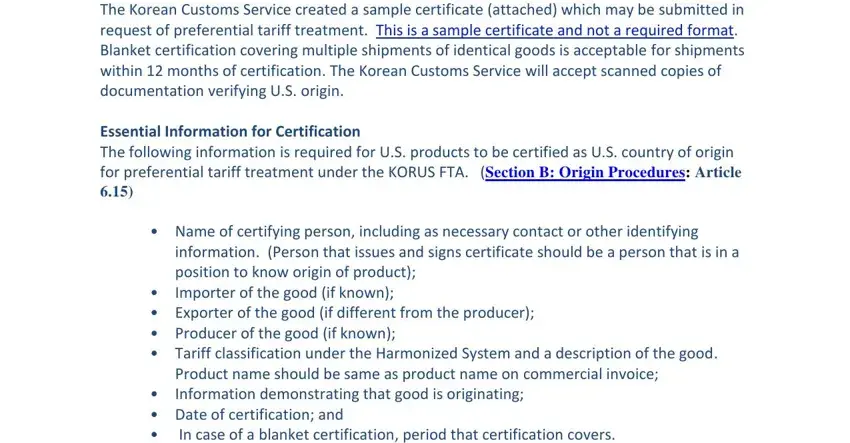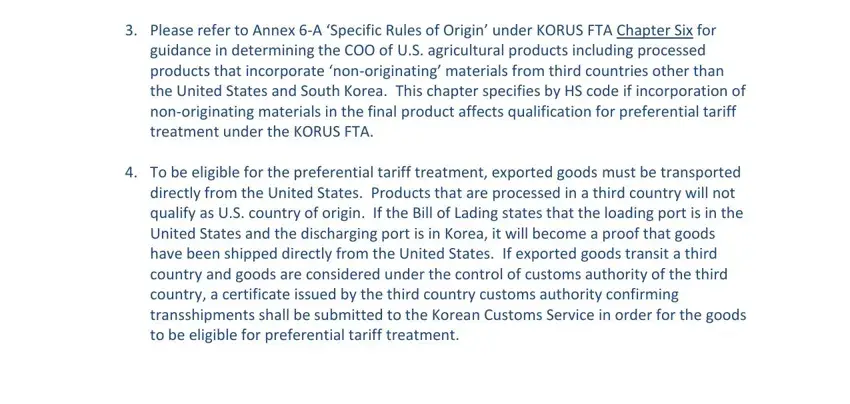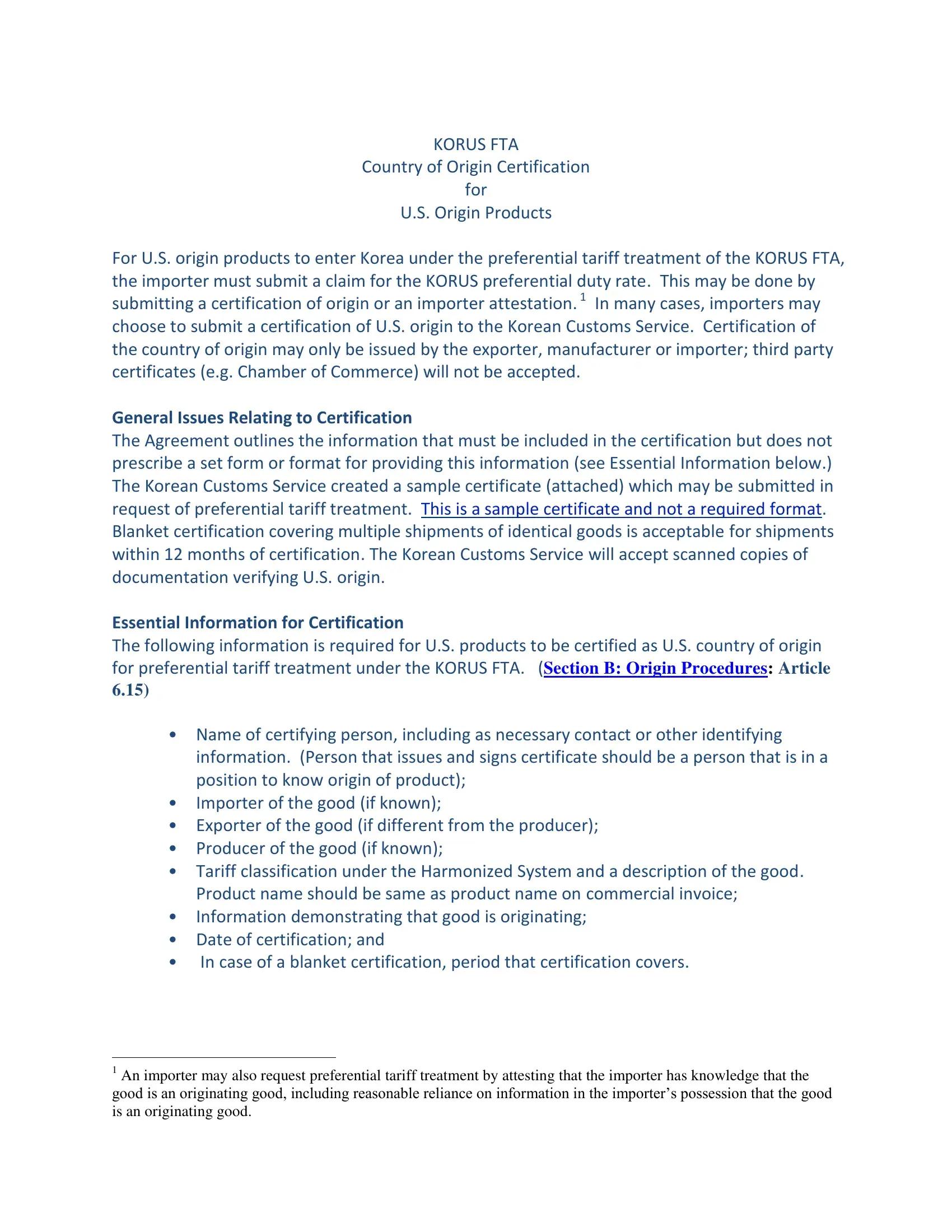KORUS FTA
Country of Origin Certification
for
U.S. Origin Products
For U.S. origin products to enter Korea under the preferential tariff treatment of the KORUS FTA, the importer must submit a claim for the KORUS preferential duty rate. This may be done by submitting a certification of origin or an importer attestation. 1 In many cases, importers may choose to submit a certification of U.S. origin to the Korean Customs Service. Certification of the country of origin may only be issued by the exporter, manufacturer or importer; third party certificates (e.g. Chamber of Commerce) will not be accepted.
General Issues Relating to Certification
The Agreement outlines the information that must be included in the certification but does not prescribe a set form or format for providing this information (see Essential Information below.) The Korean Customs Service created a sample certificate (attached) which may be submitted in request of preferential tariff treatment. This is a sample certificate and not a required format. Blanket certification covering multiple shipments of identical goods is acceptable for shipments within 12 months of certification. The Korean Customs Service will accept scanned copies of documentation verifying U.S. origin.
Essential Information for Certification
The following information is required for U.S. products to be certified as U.S. country of origin for preferential tariff treatment under the KORUS FTA. (Section B: Origin Procedures: Article
6.15)
•Name of certifying person, including as necessary contact or other identifying information. (Person that issues and signs certificate should be a person that is in a position to know origin of product);
•Importer of the good (if known);
•Exporter of the good (if different from the producer);
•Producer of the good (if known);
•Tariff classification under the Harmonized System and a description of the good. Product name should be same as product name on commercial invoice;
•Information demonstrating that good is originating;
•Date of certification; and
•In case of a blanket certification, period that certification covers.
1An importer may also request preferential tariff treatment by attesting that the importer has knowledge that the good is an originating good, including reasonable reliance on information in the importer’s possession that the good is an originating good.
Verification
Korean Customs Service may verify information through post-clearance investigations. U.S. exporters or producers shall maintain original copies of the following records for a minimum of five years from the date the certification is issued:
•Purchase of, cost of, value of, and payment for, the exported product;
•Purchase of, cost of, value of, and payment for all materials, including indirect materials, used in production of exported good;
•Production of good in form in which it was exported; and
•Such other documentation as the Parties may agree to require
Additional Information
1.Duties paid for shipments that entered Korea without a country of origin (COO) certificate can be reimbursed if a valid COO covering the period of previous imports is submitted to the customs office within one year of customs clearance.
2.The COO certification for receiving preferential tariff treatment under the KORUS FTA is separate from the existing rule for COO labeling. The regulations for COO labeling require that the certificate come from a third party, such as a Chamber of Commerce. Therefore, importers must submit two sets of COO certificates. 1) certificate issued by the importer, producer or exporter to receive preferential tariff treatment under the KORUS FTA, and, 2) certificate issued by a third party, such as a Chamber of Commerce, to meet labeling requirements.
3. Please refer to Annex 6-A Specific ‘ules of Origi u der KO‘US FTA Chapter Six for
guidance in determining the COO of U.S. agricultural products including processed products that i corporate o -origi ati g aterials fro third cou tries other tha
the United States and South Korea. This chapter specifies by HS code if incorporation of non-originating materials in the final product affects qualification for preferential tariff treatment under the KORUS FTA.
4.To be eligible for the preferential tariff treatment, exported goods must be transported directly from the United States. Products that are processed in a third country will not qualify as U.S. country of origin. If the Bill of Lading states that the loading port is in the United States and the discharging port is in Korea, it will become a proof that goods have been shipped directly from the United States. If exported goods transit a third country and goods are considered under the control of customs authority of the third country, a certificate issued by the third country customs authority confirming transshipments shall be submitted to the Korean Customs Service in order for the goods to be eligible for preferential tariff treatment.




